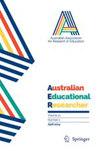最重要的效应大小基准:教育干预常常失败
IF 2.4
3区 教育学
Q2 EDUCATION & EDUCATIONAL RESEARCH
引用次数: 1
摘要
讨论使用效应大小基准来解释研究结果的优点是一种有益的做法。然而,这些争论掩盖了从文献中效应大小估计的经验分布中出现的更核心的见解:改善教育的努力往往无法推动指针。我发现,在标准化成就结果的教育干预随机对照试验中,36%的效应值小于0.05 SD。在我们看来,发表偏见肯定掩盖了更多失败的努力。认识到这些失败的频率应该是解释效应大小的政策相关性的任何方法的核心。我们可以把目标定得很高,而不会忽视那些代表更多增量改进的效应大小。本文章由计算机程序翻译,如有差异,请以英文原文为准。
The Effect-Size Benchmark That Matters Most: Education Interventions Often Fail
It is a healthy exercise to debate the merits of using effect-size benchmarks to interpret research findings. However, these debates obscure a more central insight that emerges from empirical distributions of effect-size estimates in the literature: Efforts to improve education often fail to move the needle. I find that 36% of effect sizes from randomized control trials of education interventions with standardized achievement outcomes are less than 0.05 SD. Publication bias surely masks many more failed efforts from our view. Recognizing the frequency of these failures should be at the core of any approach to interpreting the policy relevance of effect sizes. We can aim high without dismissing as trivial those effects sizes that represent more incremental improvement.
求助全文
通过发布文献求助,成功后即可免费获取论文全文。
去求助
来源期刊

Australian Educational Researcher
EDUCATION & EDUCATIONAL RESEARCH-
CiteScore
4.60
自引率
14.30%
发文量
81
期刊介绍:
The Australian Educational Researcher is the international, peer reviewed journal published by AARE. The Australian Educational Researcher is published three times a year and is a Thomson (ISI) indexed journal. The aim of AER is to:Promote understandings of educational issues through the publication of original research and scholarly essays.Inform education policy through the publication of papers utilising a range of research methodologies and addressing issues of theory and practice.Provide a research forum for education researchers to debate current problems and issues.Provide an international and national perspective on education research through the publication of book reviews, scholarly essays, original quantitative and qualitative research and papers that are methodologically or theoretically innovative.AER welcomes contributions from a variety of disciplinary perspectives on any level of education.
 求助内容:
求助内容: 应助结果提醒方式:
应助结果提醒方式:


